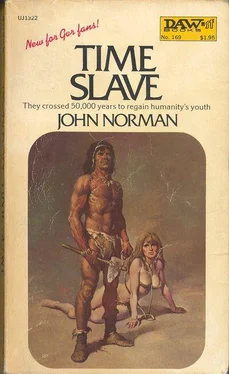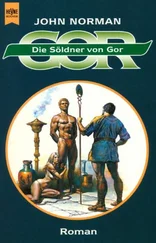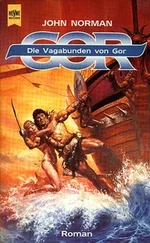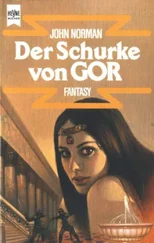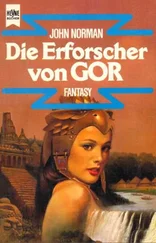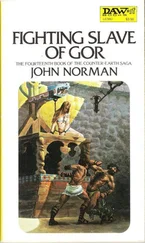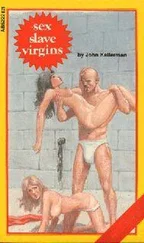John Norman - Time Slave
Здесь есть возможность читать онлайн «John Norman - Time Slave» весь текст электронной книги совершенно бесплатно (целиком полную версию без сокращений). В некоторых случаях можно слушать аудио, скачать через торрент в формате fb2 и присутствует краткое содержание. Город: New York, Год выпуска: 1975, ISBN: 1975, Издательство: DAW Books, Жанр: Альтернативная история, на английском языке. Описание произведения, (предисловие) а так же отзывы посетителей доступны на портале библиотеки ЛибКат.
- Название:Time Slave
- Автор:
- Издательство:DAW Books
- Жанр:
- Год:1975
- Город:New York
- ISBN:978-0879972042
- Рейтинг книги:3 / 5. Голосов: 1
-
Избранное:Добавить в избранное
- Отзывы:
-
Ваша оценка:
- 60
- 1
- 2
- 3
- 4
- 5
Time Slave: краткое содержание, описание и аннотация
Предлагаем к чтению аннотацию, описание, краткое содержание или предисловие (зависит от того, что написал сам автор книги «Time Slave»). Если вы не нашли необходимую информацию о книге — напишите в комментариях, мы постараемся отыскать её.
This was the directive that brought a dedicated group of scientists to device a means od sending one of their number back into the OLD STONE AGE when the great hunters of the Cro-Magnon days ripped the world away from the Neanderthals and their savage clan rivals.
Time Slave — читать онлайн бесплатно полную книгу (весь текст) целиком
Ниже представлен текст книги, разбитый по страницам. Система сохранения места последней прочитанной страницы, позволяет с удобством читать онлайн бесплатно книгу «Time Slave», без необходимости каждый раз заново искать на чём Вы остановились. Поставьте закладку, и сможете в любой момент перейти на страницу, на которой закончили чтение.
Интервал:
Закладка:
Perhaps a thousand years from now, Hamilton thought, we will see that our current truths, too, were not the eternal verities we took them for, but rather another step on the same journey, leading perhaps toward a truth we do not now understand and may forever fail to comprehend. We must not despise ourselves, Herjellsen had cried, even though we shall pass, and shall be superseded in our turn, for we are a moment in a grand journey, one that began in the caves and must someday, if we do not slay ourselves, take us to the stars.
I have an appointment, he had laughed, with Arcturus, and with infinities beyond.
But Herjellsen was dying.
He was mad.
Hamilton went to the door of the room, and looked out into the Rhodesian night.
The work of Herjellsen had nothing to do with the stars.
Why should he insist that it did? He was mad.
Hamilton looked back at the artifact on the table. It weighed 2.1 kilograms. Anthropologists would have termed it a tool. It was a weapon.
Herjellsen’s work did not have to do with the stars.
What is on the other side of our sensations? Is it truly atoms and the void, or is it an alternative reality?
We may only postulate, and test.
Hamilton could hear the generator now. A black servant was crossing the compound, a box on his shoulder.
There were only two blacks in the compound. The moon seemed bright over the high, wire fence.
Hamilton stepped out on the porch. It would not be wise to stay outdoors too long. It was late in summer.
Hamilton looked at the moon. Then, Hamilton looked at the stars.
There was. a reality. It was only that its nature had not yet been ascertained.
It was, Hamilton supposed, a reality beyond contingency or necessity, as we might understand such things. Such predicates were unintelligible in their application to what most profoundly existed. Hamilton thought of Scbopenhauer’s Wille, never satisfied, violent, craving, inexhaustible, relentless, merciless, demanding, greedful, incessant, savage; of Nietzsche’s Macht; of the atoms of Lucretius; of the god of Spinoza, one with the terribleness and sublimity of nature. The reality, conjectured Hamilton, is more profound than gods and men. If there be gods, they, too, are its offspring, as much as stones, and twigs and men, as much as the spaniel and the mosasaur, as much as the pain of love, the smile of a child, the gases of Betelgeuse, the tooth of the shark and the chisel of Michelangelo. It is a reality which may have spawned us, in a moment of bemusement, if only to set us its riddle, to watch us sniff about, and scratch and dig, to try to find truths which it has perhaps, in its irony, not constructed us to understand; the reality, perhaps, once fathering us, has forgotten us, leaving us to one side as a neglected toy, no longer of interest, or perhaps, a sterner father, has abandoned us that we may learn how to grow by ourselves, and be lifted only should we rise upon our own feet; seek me in the godship, it might say; I am waiting for you; but to Hamilton it seemed that the reality, what ever might be its nature, was clearly beyond morality; it was as innocent of morality as the stones of the moon, as the typhus bacillus, as the teeth of the Bengal tiger. The world was built on greed, and on killing, and hunger. To the reality doubtless the barracuda, in its way, was as perfect as the saint. The reality did not choose between them. They were both its children. Hamilton shuddered. The reality was sublime; before it even worship was an affront, a blasphemy. It wanted nothing of men. It needed nothing. It was sufficient unto itself.
But its nature? What was its nature?
Herjellsen did not know, but he had learned that its nature was not as men now thought.
Herjellsen had discovered a small thing. A clue, not well understood.
He did not know, truly, what he was doing.
But he would do it.
I do not understand this, he had said, but I see how I can use it, and I will! I will use it!
Man will go to the stars, Herjellsen had cried.
But what had the stars to do with Herjellsen’s work?
Hamilton recalled the artifact lying in the bleak room. It had little to do with the stars.
At best, it lay at the beginning of an infinity.
Yet, like zero, a nothingness, it, like each instant, both initiated and terminated an infinity.
The artifact, like each moment, was an end and a beginning, a pivot between complementary, divergent eternities.
The Romans saw this, in their sternness, their solemnity and sadness, and pride, and called it a god, and called it Janus.
I see two ways, said Herjellsen. I am Janus.
Herjellsen is mad, had laughed Gunther. Hamilton did not doubt that.
But the Herjellsen conjecture? What if it were true?
Heraclitus has seen it, had laughed Herjellsen. Hamilton’s thoughts drifted to the ancient Ionian, the poet and philosopher. I had rather discover one cause, had written Heraclitus, than become the King of Persia. He had taught all is fire. A man cannot step twice into the same river.
I believe all is pea soup, had said William. And I have often stepped twice into the same river. I stepped twice into the Thames, and once fell into it while punting.
Hamilton smiled. William made the compound bearable.
Hamilton, too, had speculated if all might not be pea soup. It seemed a plausible guess.
Herjellsen had not been offended. That all is transience, flux-fire-is only part of the teachings of Heraclitus, he had told William. And then Herjellsen had quoted the Greek, that swift, liquid tongue sounding strange in the careful, northern accents of Herjellsen-the way up and the way down are the same.
I never doubted it, had admitted William.
Herjellsen had smiled at Hamilton, lifting a fork. And the beginning, he had said, is the end, and the end is the beginning. That is what Heraclitus had seen.
I do not understand, had said Hamilton.
Time does not pass, said Herjellsen. No. It is we who pass.
Hamilton had not responded. Herjellsen, in his late fifties, bald, small eyed, the eyes seeming large behind the thick, ovoid lenses of his wire-rimmed glasses, had peered at Hamilton. Herjellsen was a large man, but short, a broad, short man, with large hands. His head was rounded and unusually large, set on a heavy neck. Yet he seemed gentle. There was usually a sheen of sweat on his forehead and cheeks, and almost always when he spoke. Herjellsen seemed to speak easily, but he was uncomfortable in doing so. He was free only when lost with his own thoughts. He seemed to fear even Hamilton. His speech, with its Finnish accent, was precise and fluent. He rarely, even in English, made a grammatical error or hesitated in his expression, or wavered in the selection of a word or gesture. His mind worked apparently with such rapidity that he spoke as though he had spoken these thoughts before. Hamilton wondered if he had.
What if the Herjellsen conjecture were true?
Hamilton put aside the thought. The conjecture could not be true.
In a sense, though, Hamilton was willing to suppose that he had. He had conceived of them, and examined them, and then rephrased them and organized them, in the lapse of time perhaps of a syllable’s utterance, and then, as though they might have been carefully written, he spoke them. Herjellsen seemed a gentle man. It was difficult to believe that he was criminally insane, that he had, in his time, in the course of strange robberies, killed four men.
In the cell at Borga could it have been the truth that he had seen?
But Herjellsen whatever the flaws of his being, was a scientist. He well knew that self-evidence was a psychological variable, differing idiosyncratically from individual to individual, from culture to culture. Hamilton knew of men to whom it was self-evident that a piece of string forming a closed figure, in any shape, would inclose the same area. Standing on the porch Hamilton quickly lit another cigarette, and watched the lights in the window of the experimental shack. The lights in the small, rectangular, metal-roofed, stuccoed building waxed and waned with the humming whine of the generator. Such obvious falsities could be taken as selfevident by some men, at least for a time, and yet their patent falsity could be in a moment demonstrated empirically. And there had been men who had believed that motion was impossible, for nonbeing could not exist and thus, motion requiring place, or emptiness, or nonbeing, could not exist. To such men the self-evident had withstood the contradictions of their own eyes. Experience must yield to reason; fact to illusion. But Herjellsen was a scientist. He distrusted the light of reason, the flash of intuition, and more sternly in his own case than in that of others. There can be no genuine hypothesis without test. A truth must have its disconfirmation conditions.
Читать дальшеИнтервал:
Закладка:
Похожие книги на «Time Slave»
Представляем Вашему вниманию похожие книги на «Time Slave» списком для выбора. Мы отобрали схожую по названию и смыслу литературу в надежде предоставить читателям больше вариантов отыскать новые, интересные, ещё непрочитанные произведения.
Обсуждение, отзывы о книге «Time Slave» и просто собственные мнения читателей. Оставьте ваши комментарии, напишите, что Вы думаете о произведении, его смысле или главных героях. Укажите что конкретно понравилось, а что нет, и почему Вы так считаете.
